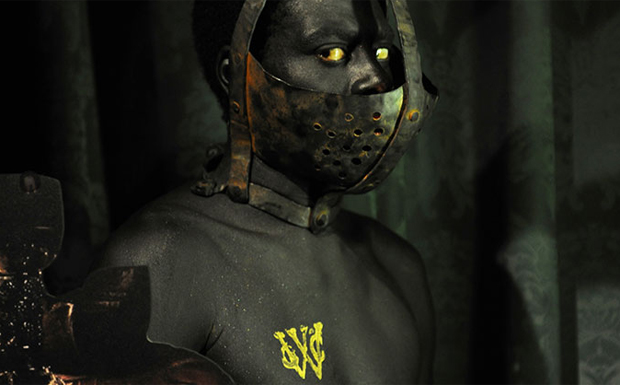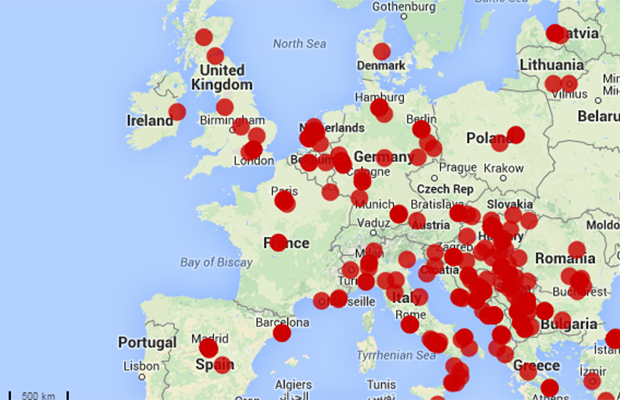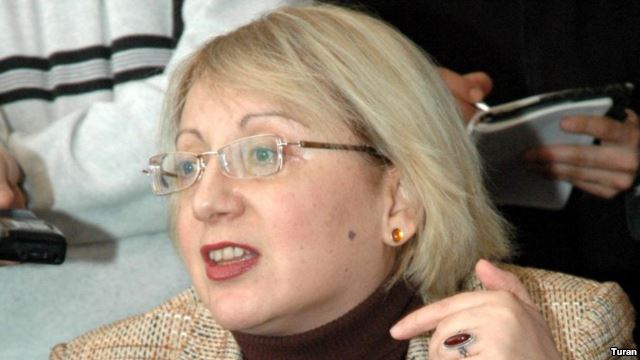Awards 2014
[vc_row full_width=”stretch_row_content_no_spaces” css_animation=”fadeIn” css=”.vc_custom_1485788605439{padding-top: 250px !important;padding-bottom: 250px !important;background-image: url(https://www.indexoncensorship.org/wp-content/uploads/2014/11/2014-logo-1460×490.png?id=81108) !important;background-position: center !important;background-repeat: no-repeat !important;background-size: cover !important;}”][vc_column][/vc_column][/vc_row][vc_row css=”.vc_custom_1472525914065{margin-top: -150px !important;}”][vc_column][vc_row_inner equal_height=”yes” content_placement=”middle”][vc_column_inner el_class=”awards-inside-desc” width=”1/2″][vc_custom_heading text=”FREEDOM OF EXPRESSION AWARDS 2014″ use_theme_fonts=”yes”][vc_column_text]Index on Censorship’s Freedom of Expression Awards exist to celebrate individuals or groups who have had a significant impact fighting censorship anywhere in the world.
- Awards were offered in four categories: Arts, Campaigning, Digital Activism and Journalism
- Winners were honoured at a gala celebration in London at the Barbican Centre
[/vc_column_text][/vc_column_inner][vc_column_inner width=”1/2″][vc_video link=”https://www.youtube.com/watch?v=AW9QlnDVi2Q&list=PLlUhPA3TuB55ge1Ysq9HesLEzGOE6hG96″][/vc_column_inner][/vc_row_inner][/vc_column][/vc_row][vc_row css=”.vc_custom_1472608310682{margin-top: 0px !important;margin-bottom: 20px !important;}”][vc_column][vc_custom_heading text=”WINNERS” font_container=”tag:h1|text_align:center” use_theme_fonts=”yes” css=”.vc_custom_1477036676595{margin-top: 0px !important;}”][vc_row_inner][vc_column_inner width=”1/3″][staff name=”Shahzad Ahmad” title=”Advocacy Award” color=”#28a7cc” profile_image=”56254″]Shahzad Ahmad is one of the leading voices in the fight against online censorship in Pakistan. The country faces a deteriorating state of cyber freedom, as the government uses draconian censorship laws and increasing surveillance to police the internet. Ahmad is country director of Bytes4All. The group campaigns for internet rights and democracy by building capacity for human rights defenders, as well as advocacy and awareness-raising. Ahmad and Bytes4All have sued the Pakistani government over the suspected use of surveillance software, FinFisher – a piece of software that infects a computer and takes full control of it, intercepting Skype calls and allowing every keystroke the user types to be sent across the internet to another computer. Developed by UK-based company Gamma International, it has been used to target activists in Bahrain amongst other countries. He is also suing the government over its ongoing blocking of YouTube which deprives the country of one of the world’s most popular video channels.[/staff][/vc_column_inner][vc_column_inner width=”1/3″][staff name=”Mayam Mahmoud” title=”Arts Award” color=”#28a7cc” profile_image=”81023″]Rapper Mayam Mahmoud uses hip-hop to address issues such as sexual harassment and to stand up for women’s rights in Egypt. Women played a significant role in the demonstrations that eventually toppled the regime of Hosni Mubarak in 2011. In the aftermath, however, the problem of sexual harassment has become what activists now describe as “an epidemic”. The 18-year-old rose to prominence through her appearances on the popular TV show Arabs Got Talent. Aged 12, she was introduced to poetry by her mother. She began writing her own work, which soon turned into rap — still a male dominated music genre across the world.[/staff][/vc_column_inner][vc_column_inner width=”1/3″][staff name=”Shubhranshu Choudhary” title=”Digital Actvism Award” color=”#28a7cc” profile_image=”56255″]Journalist Shubhranshu Choudhary is the brain behind CGNet Swara (Voice of Chhattisgarh) a mobile-phone (no smartphone required) service that allows citizens to upload and listen to local reports in their local language. CGNet Swara is a vital tool giving people who are deprived of a voice and platform in mainstream media, on the wrong side of the digital divide, a chance to have a say on and learn about the issues that affect them the most. Furthermore, CGNet Swara also manages to circumvent India’s strict broadcast licensing laws. Choudhary estimates that there are some 100 million people in India for whom mainstream methods of communicating news don’t work, whether due to language barriers, low levels of literacy or lack of access to internet and newspapers among other things. This represents a serious barrier to their socio-economic development, as they are not updated on stories of importance to them, and their views and grievances and demands are not voiced and addressed.[/staff][/vc_column_inner][/vc_row_inner][vc_row_inner][vc_column_inner width=”1/3″][staff name=”Azadliq” title=”Journalism Award” color=”#28a7cc” profile_image=”56243″]One of the few remaining independent media outlets in Azerbaijan, the newspaper Azadliq has continued to report on government corruption and cronyism in spite of an increasing financial squeeze enforced by the authorities. The country likes to present itself as a modern democracy, but it is widely recognised as an authoritarian regime where opposition is often brutally cracked down on and critical voices silenced. In this environment, Azadliq works to hold the ruling Aliyev family, and the rest of the powerful elite in the country to account. The latest attacks on the paper came hot on the heels of the country’s 2013 presidential election, where Ilham Aliyev was reelected in a vote labelled flawed by the OSCE. The paper has been been the target of defamation suits that have resulted in £52,000 in fines. Courts found Azadliq guilty of “damaging” the business reputation of Kabira Mamedova, director of the Baku-based Bina shopping centre, and Taghi Ahmadov, CEO of the Baku Metro, after the paper published articles critical of their activities.[/staff][/vc_column_inner][vc_column_inner width=”1/3″][/vc_column_inner][vc_column_inner width=”1/3″][/vc_column_inner][/vc_row_inner][/vc_column][/vc_row][vc_row][vc_column][vc_custom_heading text=”JUDGING” font_container=”tag:h1|text_align:center” use_theme_fonts=”yes”][vc_row_inner el_class=”mw700″][vc_column_inner][vc_column_text]
Criteria – Anyone involved in tackling free expression threats – either through journalism, campaigning, the arts or using digital techniques – is eligible for nomination.
Any individual, group or NGO can nominate or self-nominate. There is no cost to apply.
Judges look for courage, creativity and resilience. We shortlist on the basis of those who are deemed to be making the greatest impact in tackling censorship in their chosen area, with a particular focus on topics that are little covered or tackled by others.
Nominees must have had a recognisable impact in the past 12 months.
Where a judge comes from a nominee’s country, or where there is any other potential conflict of interest, the judge will abstain from voting in that category.
Panel – Each year Index recruits an independent panel of judges – leading world voices with diverse expertise across campaigning, journalism, the arts and human rights.
The judges for 2014 were:
[/vc_column_text][/vc_column_inner][/vc_row_inner][vc_row_inner][vc_column_inner width=”1/3″][staff name=”Samira Ahmed” title=”Journalist and BBC broadcaster” color=”#28a7cc” profile_image=”80231″]Samira Ahmed is a British freelance journalist, writer and broadcaster at the BBC, where she has presented Radio 4’s PM, The World Tonight and Sunday. She also presented two Proms for BBC Four in 2011. On BBC Radio 3, Ahmed is one of the presenters of Night Waves. Her writing has appeared in The Guardian, The Independent and for The Spectator magazine’s Arts Blog. She was a reporter and presenter on Channel 4 News from 2000 to 2011. She presented Sunday Morning Live, a topical discussion programme on BBC One from 2012 to 2013.[/staff][/vc_column_inner][vc_column_inner width=”1/3″][staff name=”Howard Brenton” title=”Playwright” color=”#28a7cc” profile_image=”80230″]Howard John Brenton is an English playwright and screenwriter.[/staff][/vc_column_inner][vc_column_inner width=”1/3″][staff name=”Edward Fitzgerald QC CBE” title=”Barrister, Doughty Street Chambers” color=”#28a7cc” profile_image=”80229″]Edward Hamilton Fitzgerald CBE QC is an English barrister who specialises in criminal law, public law, and international human rights law.[/staff][/vc_column_inner][/vc_row_inner][vc_row_inner][vc_column_inner width=”1/3″][staff name=”Stephen King” title=”Partner, Omidyar Network” color=”#28a7cc” profile_image=”80232″]Stephen King is a partner at Omidyar Network, the philanthropic investment firm set up by Pierre Omidyar, the founder of eBay and his wife, Pam. King invests in technology platforms which drive improved government transparency and accountability worldwide.[/staff][/vc_column_inner][vc_column_inner width=”1/3″][/vc_column_inner][vc_column_inner width=”1/3″][/vc_column_inner][/vc_row_inner][/vc_column][/vc_row][vc_row css=”.vc_custom_1473325552363{margin-top: 0px !important;margin-bottom: 20px !important;padding-top: 0px !important;padding-right: 15px !important;padding-bottom: 0px !important;padding-left: 15px !important;}”][vc_column css=”.vc_custom_1473325567468{margin-top: 0px !important;margin-bottom: 0px !important;padding-top: 0px !important;padding-bottom: 0px !important;}”][awards_gallery_slider name=”GALLERY” images_url=”80990,80991,80992,80993,80994,80995,80996,80997,80998,80999,81000,81001,81003,81004,81005,81006,81008,81009,81010,81011,81012,81014,81016,81017,81018,81019,81020,81021,81022″][/vc_column][/vc_row]


![People taking part in the funeral procession of Lasantha Wickrematunge (By Indi Samarajiva [CC-BY-2.0 (http://creativecommons.org/licenses/by/2.0)], via Wikimedia Commons](https://www.indexoncensorship.org/wp-content/uploads/2014/11/Lasantha_Wickrematunge_funeral_banners_1.jpg)

